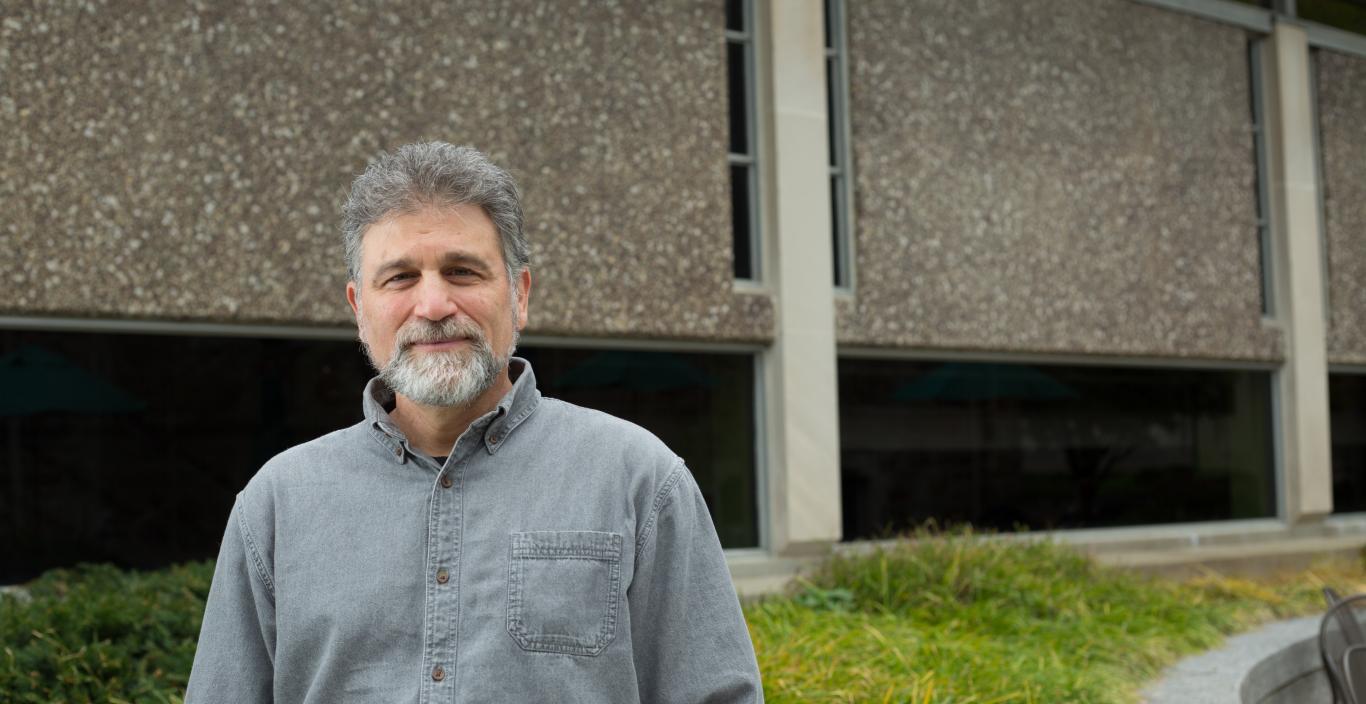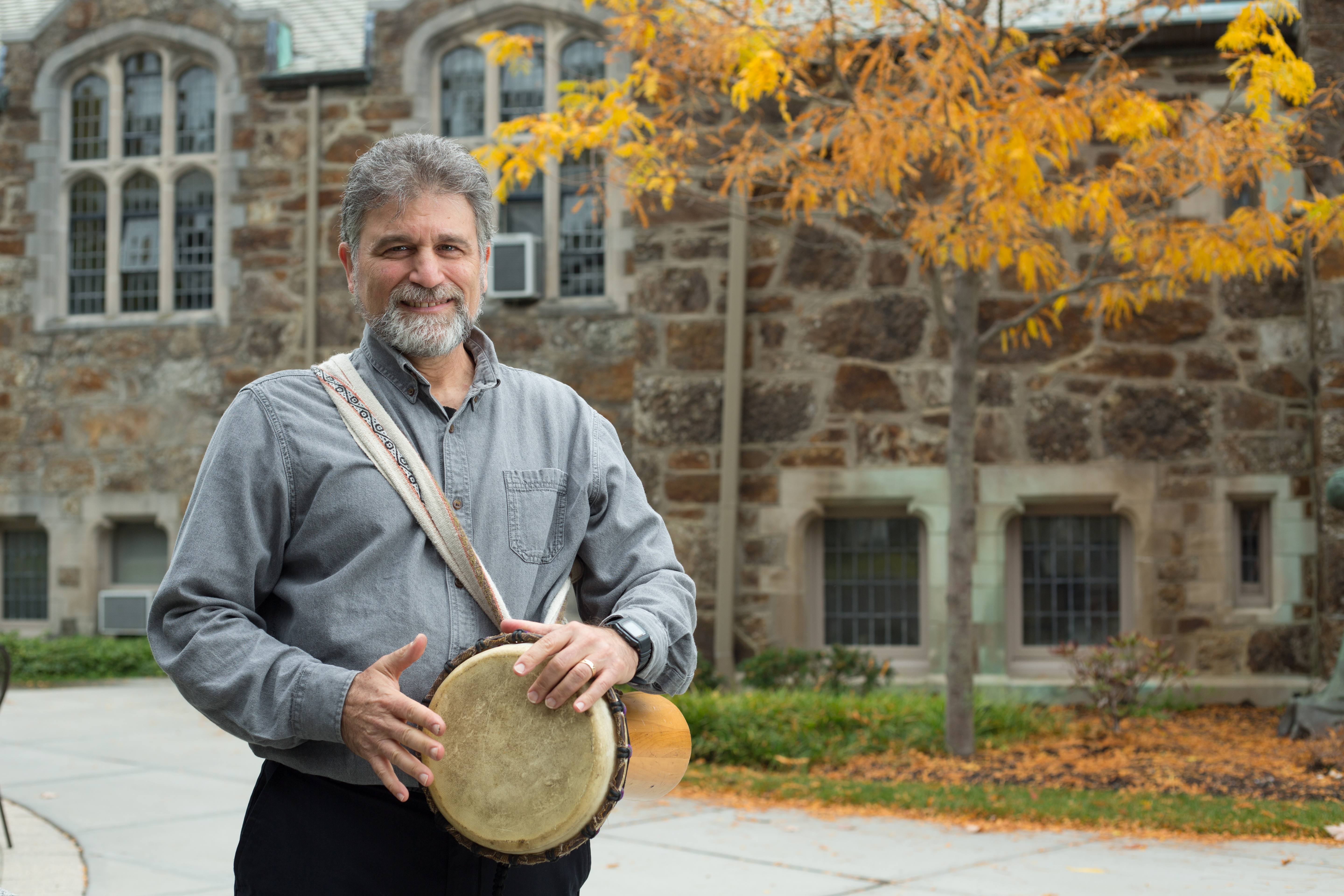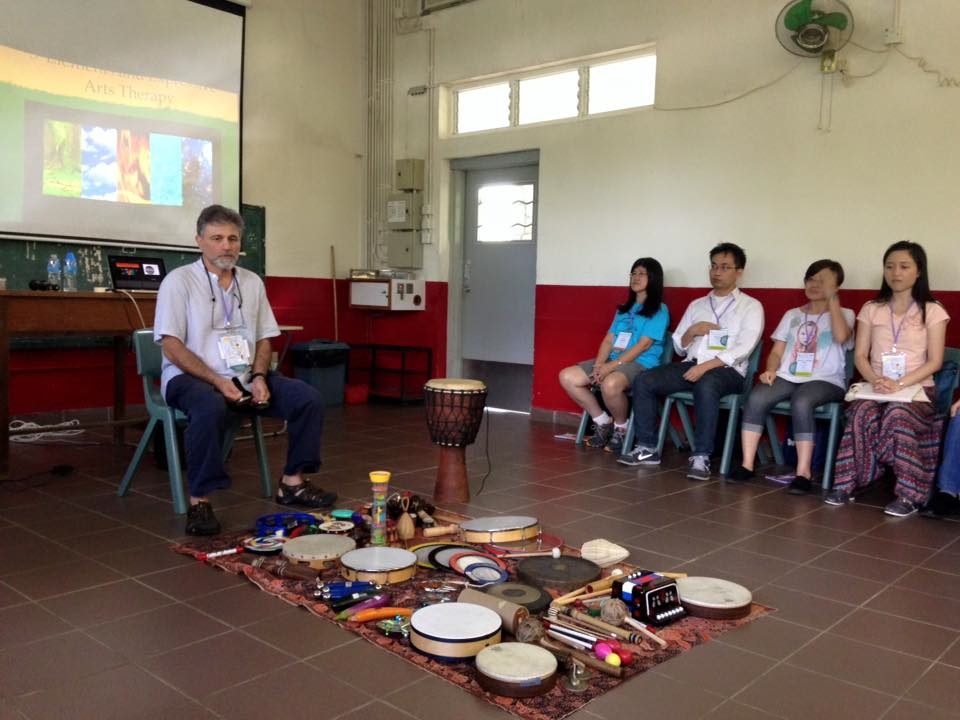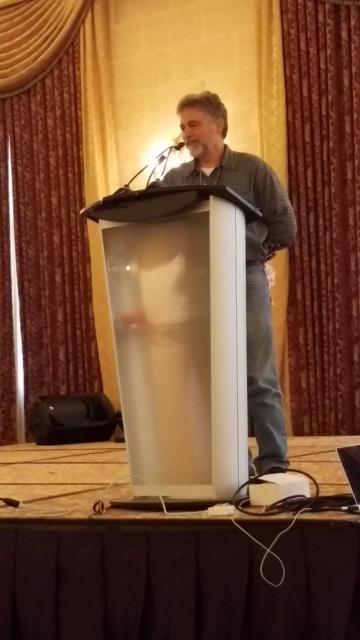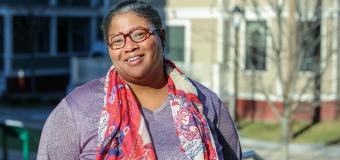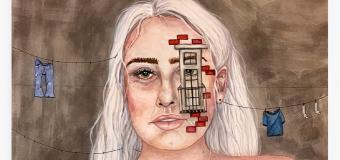It’s not often that one literally falls into their destined career path.
For Associate Professor Mitchell Kossak, a fall in an unexpected direction led him directly to Lesley.
Kossak, who was recently honored with the International Expressive Arts Therapy Association’s (IEATA) “Shining Star” lifetime achievement award, began his career in the arts as an aspiring musician. Upon completing his undergraduate degree in English in 1978, he applied to the New England Conservatory (NEC) in 1980 for an advanced degree in piano and scheduled an audition and his first trip to Boston in 1980, where he stayed with a friend studying Expressive Therapies at Lesley.
“I came to meet my friend here on the Lesley campus and she was having a class in the theater with Paolo Knill, one of the first teachers in the Expressive Therapies program,” he recalled. “I peeked into the class and they were doing some interesting things on the stage and then I went off to NEC.
“It was a horrible audition,” Kossak continued. “It was one of those things where you’re playing along and then someone comes along and taps you on the shoulder and says, ‘Thank you very much.’”
A fortuitous fall
Dejected and a little geographically disoriented, Kossak attempted to make his way back to Lesley to meet his friend, stepping off of a bus in Harvard Square and knocking over the same Lesley professor from his friend’s Expressive Therapies class. As he helped Dr. Knill pick up the art supplies he’d been carrying, Kossak struck up a conversation.
“I told him where I’d just come from and he suggested I walk back with him to meet my friend,” said Kossak. “I just had this completely different feeling than that audition.”
After researching Lesley’s program and seizing the unexpected opportunity, Kossak returned to Lesley as a student one year later, specifically not choosing music therapy, but integrated arts instead.
“I was interested in theater and the embodied aspects of acting, playing music and movement,” Kossak explained. “I hung out a lot with visual artists and poets and I was writing poetry at the time myself. I was just interested in all the different aspects of creativity.”
Upon graduation, Kossak worked at Danvers State Psychiatric Hospital and the New England Medical Center School for adolescents with emotional difficulties. He also continued training in body-oriented psychotherapy and other aspects of professional training to build on his knowledge of the practice. In 1995, after about 12 years in the field, Kossak received a call to see if he’d be interested in teaching at his alma mater as an adjunct and began as a part-time faculty member.
A shining achievement
Kossak’s career as a Lesley professor has led him around the world. As the executive co-chair of the International Expressive Arts Therapy Association, he directed expressive arts therapy conferences from Peru to Hong Kong in addition to visiting professorships in China and South Korea.
He wrote “Attunement in Expressive Arts Therapy: Toward an understanding of embodied empathy,” published in 2015, and serves as associate editor for the international Journal of Applied Arts and Health, all of which contributed to the IEATA’s decision to award him the 10th Lifetime Achievement “Shining Star” Award at their most recent conference in Winnipeg in October.
Awarded every two years, the honor is bestowed upon “pioneers who had contributed to the formation and life” of the organization as well as act as a “guiding light inspiring [the association as they] navigate the birth of the field.”
“To my surprise, they gave me this award,” reflected Kossak, who has been a licensed mental health counselor since 1994, and a Registered Expressive Arts Therapist (REAT) since 2009. “All the other names on that list, the previous recipients, are pretty much the elders, for me – people who started this field or started a university program or have done distinguished work like that, and so that, in and of itself was a surprise that I was on this list.”
“Peace-ing the World Together”
Kossak’s work at different IEATA conferences influenced the field in significant ways. He recalls one instance in particular when the conference took place on Lesley’s campus in 2009 and he served as co-director.
The theme was social action, and they engaged 100 people in an intergenerational project called “Peace-ing the World Together,” through which the conference facilitators posed the question, “What does peace mean to you?”
They brought six Boston youth groups to campus to learn songs and movement before sending them to six different elderly centers around Boston where the youth interviewed the elderly, posing “What does peace mean to you?”
The youth created silhouettes of the elderly clients’ faces, and collaged all of their profiles into a large mural that was installed at the conference. There were also short videos of people from around the world who submitted their ideas of what peace means playing in the University Hall Atrium.
“The response was amazing,” said Kossak.
Kossak’s body of work and IEATA’s recognition of his achievements highlight his impact and influence. He’s also been around long enough to see significant changes in Lesley’s program as well as the overall field, like the shift from focusing solely on the arts, to incorporating mental health counseling and work in clinics and psychiatric organizations around Boston.
“When the program started, it was the first of its kind,” he reflected. “It was very innovative, very experimental. It’s become very grounded in theory and clinical aspects of the work.”
Moving toward community-based social justice and awareness
Now, Kossak is focused on the future of Lesley’s program and the evolving field of expressive arts therapy.
“Moving forward, we need to help strengthen developing programs in the community and the places that want to develop programs around the world,” said Kossak.
Kossak looks forward to serving as a resource as the expressive arts therapy discipline evolves and adapts to meet clients’ needs across the globe.
“The emphasis is opening up to wider community-based social justice and social awareness-based issues,” he said, “as we’re doing across the university.”
